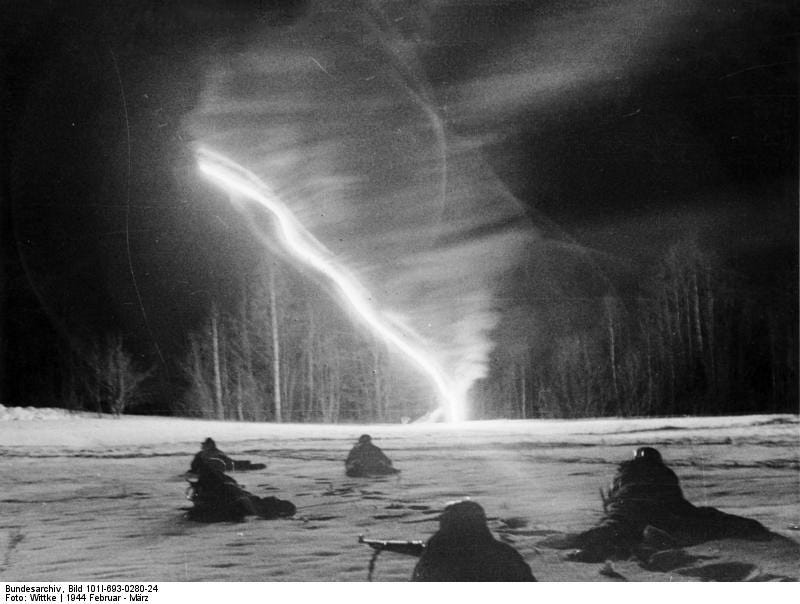Hitler calls for "iron will"
16th February 1944: The strategy in the East is reduced to 'steadfast resistance' - re-inforced by threats to shoot Wehrmacht leaders who do not comply


On the Eastern Front German forces had suffered significant reverses since the Red Army offensive at the beginning of the year. From any reasonable perspective, they had suffered significant defeats from which there was no real prospect of recovering. Yet, Hitler maintained a cohesive army in the East and kept them fighting despite everything. Faith in the Nazi cause continued to be a potent factor.
It was not primarily about operational experience any more, but about the firmness and steadfastness of commanders.
Hitler's attitude to these defeats was only discovered from disclosures by his personal aides after the war. His personal valet, Heinz Linge, and his SS adjutant, Otto Guensche, became prisoners of the Soviets. Interrogation of these two men provided a picture of Hitler in his private moments, and when making key decisions.
This material was collated into what became known as ‘The Hitler Book’1. This remained a Soviet state secret for a long time, a personal entertainment for Stalin.
Only recently published in the west, it throws light on Hitler’s attitude when facing defeat:
In the middle of February 1944 Zeitzler [Chief of Staff] briefed Hitler on the situation on the Eastern Front. He had long ceased to be the bundle of energy he had once been. He still spoke as quickly as ever, but now he gave the impression of wanting to finish the briefing as quickly as possible. As always in recent times, he began with the situation of Army Group South.




